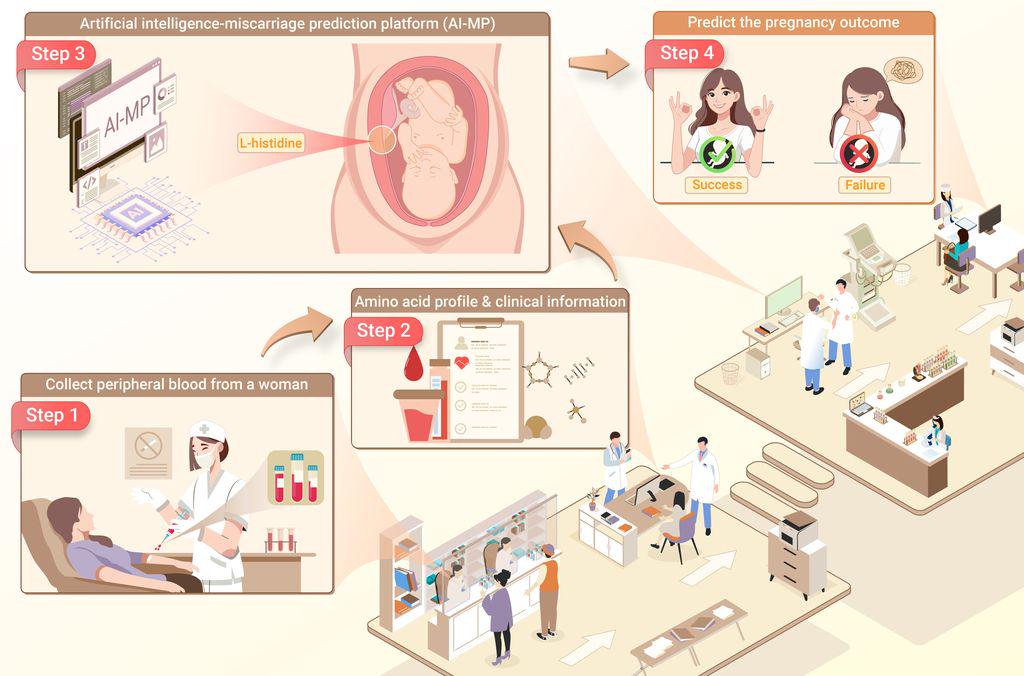In the latest paper published this month, a team of researchers led by Prof. Jinjin Li of Shanghai Jiaotong UniversityDeveloped interpretable AI algorithm, building an early warning platform for abortion risk by analyzing serum metabolites.For the first time, it was realized inhave conceivedPrecise prediction of miscarriage risk before.
Project Team
The project team is led by Prof. Jinjin Li of Shanghai Jiaotong University, together with Vice President Liping Jin of Shanghai Honghoushang Obstetrics and Gynecology Hospital, the First Women's and Infants' Hospital affiliated with Tongji University, and Ruijin Hospital affiliated with Shanghai Jiaotong University School of Medicine, who are involved in the development of the project.

The paper, titled "Interpretable learning predicts miscarriage using pre-pregnancy serum metabolites," was published in October in the journal The Innovation Medicine.
Project Background
Miscarriage, especially Recurrent Spontaneous Miscarriage (RSM), is defined as two or more consecutive spontaneous terminations of a woman's pregnancy in the early stages of pregnancy. According to the World Health Organization, 23 million miscarriages occur globally each year, including many RSM cases.
Although a variety of clinical monitoring methods, such as ultrasound and human chorionic gonadotropin (hCG) testing, are available, they are mostly used for after-the-fact diagnosis, and it is difficult to warn of the risk of miscarriage in advance.
Projects
By analyzing serum samples from 481 women and combining it with other relevant clinical indicators, the research teamAI-MP (Artificial Intelligence Miscarriage Prediction), a high-precision miscarriage risk prediction model, has been successfully constructed.
This study reveals for the first time the importance of histidine (Histidine) as one of the key biomarkers for miscarriage risk prediction. Abnormally elevated histidine levels are thought to be strongly associated with the risk of miscarriage, especially in patients with recurrent spontaneous abortions, and high levels of histidine may lead to problems such as insufficient remodeling of the spiral arteries of the uterus during pregnancy and impeded invasion of trophoblast cells, which may in turn increase the chance of miscarriage.
Attach reference address